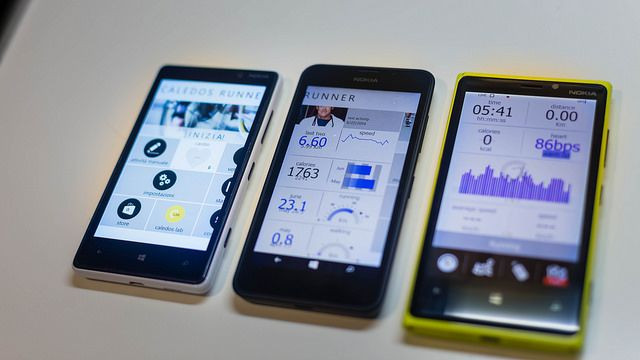Health Apps Are Wildly Popular, But People Rarely Use Them For Long, Citing Costs, Privacy Concerns

If you’re like many Americans, you probably have at least one health-related app on your smartphone — whether it’s Apple’s HealthKit, Google Fit, or the myriad other apps that dominate the App and Google Play stores. Health apps have been so popular, in fact, that their downloads have doubled in the last year alone. And while 66 percent of Americans say they would use a health app to manage their health-related issues, a new study has found that just like the wearables they go with, many Americans end up ditching the apps soon after downloading them.
Conducted by researchers at the New York University Langone Medical Center, the online national survey found 58 percent of 1,604 adult smartphone users (average age of 40) had downloaded one of the estimated 40,000 health-related apps available in these stores. Forty-two percent, meanwhile, downloaded five or more of them. More than two-thirds of the respondents said the apps improved their overall health, and a majority claimed to have faith in the accuracy of the apps.
The countrywide survey was conducted in June 2015, with participants volunteering to answer 36 questions based on their app use, health status, and personal information. The researchers found the most downloaded apps were those related to fitness and nutrition; 53 percent downloaded apps to track physical activity, such as steps taken, miles traveled, and calories burned, while 48 percent downloaded the apps to track food consumption. Forty-seven percent of respondents also downloaded the apps to aid with weight loss. Nearly 65 percent of respondents, comprised equally of men and women, used the apps daily.
Yet, as effective as people believed the apps to be and as popular as they were, not all of the apps were used for long periods of time. Forty-six percent of respondents said they had downloaded a health app they no longer used. Some factors that led to shortened or ineffective use included concerns about cost, overall disinterest in the app, and privacy — specifically how the apps kept user information.
"Smartphone applications have tremendous potential to help market healthy lifestyle habits to people who may be harder to reach in other ways, especially minorities, and those with lower incomes and serious health problems," study senior investigator and NYU Langone epidemiologist Dustin Duncan said in a press release.
Both Duncan and study lead investigator Dr. Paul Krebs, a clinical psychologist, agree that more work must be done to determine the overall health benefits of these apps as well as their ability to reach and impact underserved groups. Krebs also believes app developers should focus on keeping costs low, reaching out to users about privacy concerns, and making it easier to input information into the apps. With these steps, these apps will become integral to our lives and hopefully improve the way we think about, track, and monitor our health, rather than just being cast aside.
Source: Duncan, D, Krebs, P. National survey of Americans' health app use shows technology's promise and weakness. Journal of Medical Internet Research. 2015.



























